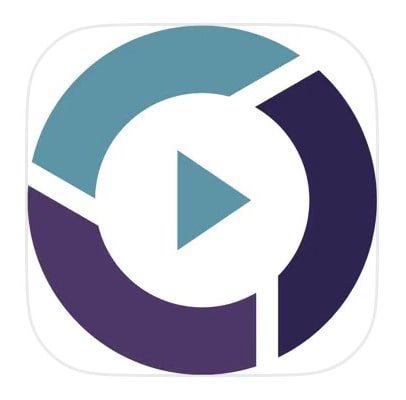
A smart phone application designed by three Psychiatric Research Institute (PRI) researchers to decrease opioid cravings and optimize medication-assisted treatment among individuals with opioid use disorder is drawing national attention.
A prototype of the app, known as OptiMAT (Optimizing Medication Assisted Treatment), was one of five winning entries in the 2022 National Institute on Drug Abuse (NIDA) “Product Prototypes to Combat Drug Craving” Challenge, a national contest of product prototypes designed to reduce drug cravings and prevent drug misuse, earning Andrew James, Ph.D., Ronald G. Thompson, Ph.D., and Mary Bollinger, Ph.D., an honorable mention and a $5,000 cash prize.
James and Thompson co-chaired a symposium at the College on Problems of Drug Dependence’s annual scientific meeting in Denver in June. The symposium highlighted the inspiration behind the winning entries in the NIDA contest. Thompson discussed OptiMAT’s ability to reduce opioid misuse through daily monitoring of mood and craving while James discussed the role of neuroimaging to understand the neurobiological mechanisms of app-based interventions like OptiMAT.
“An estimated 40 percent of people with opioid use disorder return to opioid use within one year of initiating outpatient medication-assisted treatment. OptiMAT was created to help people manage their opioid cravings and, hopefully, prevent relapse,” said James, a neuroimaging scientist in PRI’s Helen L. Porter and James T. Dyke Brain Imaging Research Center.
Opioids accounted for 68,630 overdose deaths in 2020, according to the Centers for Disease Control and Prevention. Rural states like Arkansas are the hardest hit by opioid overdose because of higher opioid prescription rates and a lack of health care resources, resulting in an opioid-related mortality rate four times that of urban areas. Arkansas has the second highest opioid prescription rate in the country, with 75.8 prescriptions per 100 residents, compared to the national average of 43.3 in 2020.
OptiMAT’s features include self-monitoring of daily opioid use, opioid craving and mood; personalized feedback on goal attainment; charts generated to depict self-assessments over time; health information and abstinence-supporting resources; tips to manage craving and avoid opioid misuse; and a GPS-driven “just-in-time” intervention when entering predesignated geographical areas known to increase risk for opioid use.
“Tracking daily medication use, mood, cravings and withdrawal keeps people aware of and accountable for their behaviors, while the personalized feedback on goal attainment reinforces sobriety and promotes engagement in medication-assisted treatment for opioid use disorder,” said Thompson, an assistant professor in the University of Arkansas for Medical Sciences Department of Psychiatry.
“The GPS-driven just-in-time intervention alerts the participant when they enter a high-risk area, and encourages the participant to leave the area and call a friend, family member or emergency contact for help before they lapse back to opioid use,” said Bollinger, an assistant professor in the Department of Psychiatry.
Funded by a $2.8 million grant from the National Institute on Drug Abuse, the research team, along with Clint Kilts, Ph.D., and Michael Mancino, M.D., is currently conducting a clinical trial to test the effectiveness of OptiMAT among individuals receiving medication-assisted treatment for opioid use disorder at PRI’s Center for Addiction Services and Treatment.
